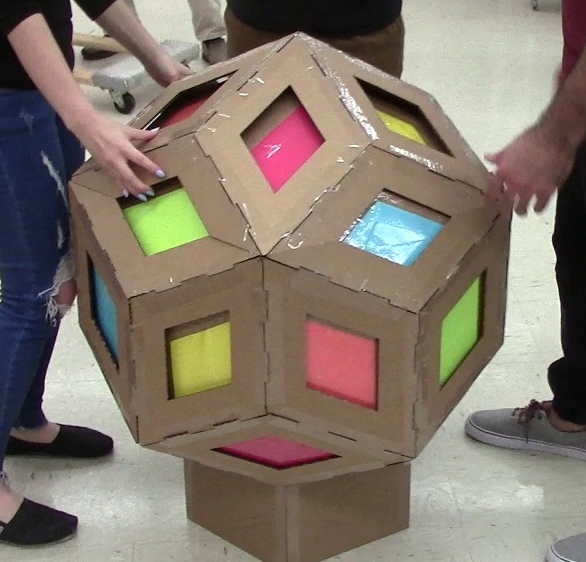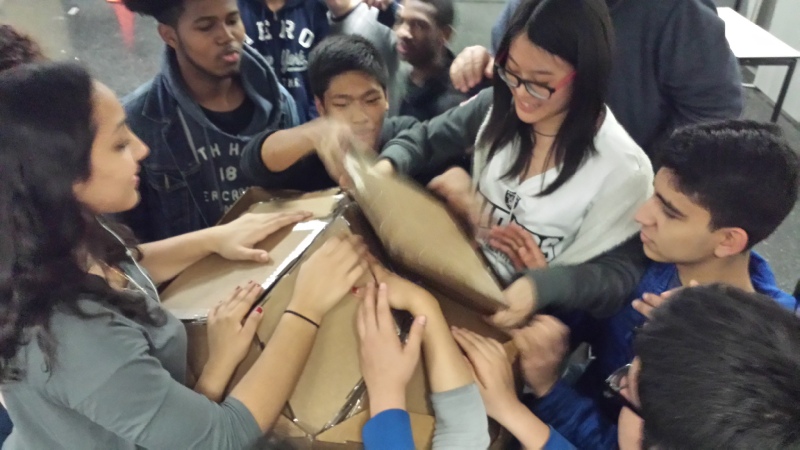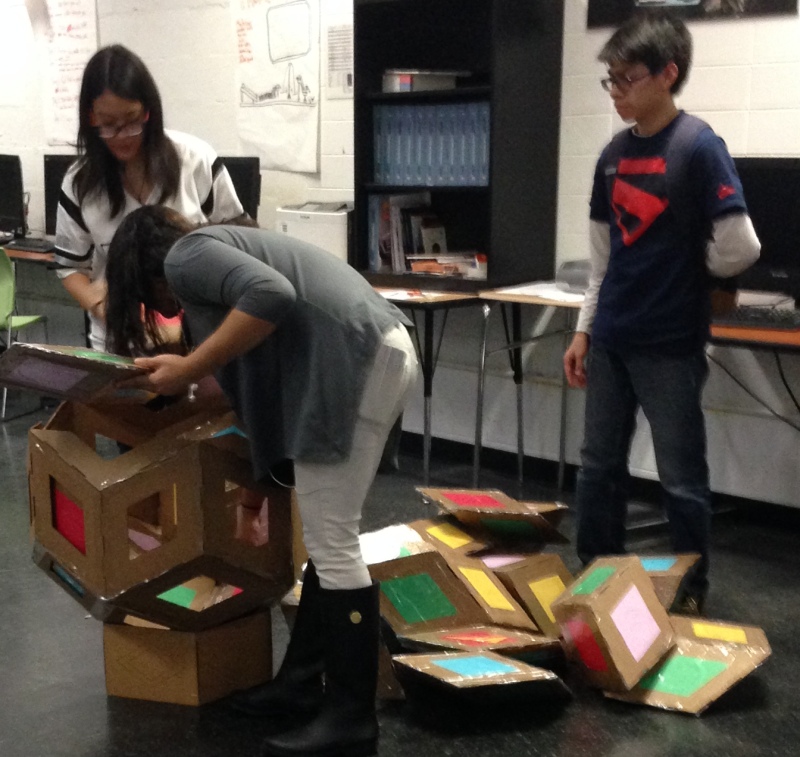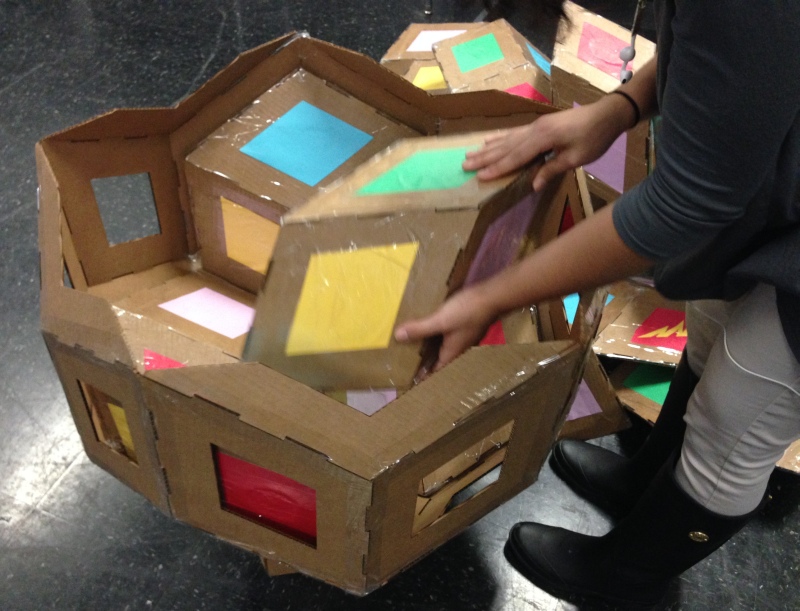
Rhombic Triacontahedron Puzzle
III. Cardboard Colossus

Time Required: 80 Minutes
Materials
- Cardboard sheets laser-cut using this template (to make 20 blocks, 120 rhombi are needed)
- Cardboard sheets laser-cut using this template (to make the shell, 30 rhombi are needed)
- Cardboard
sheets laser-cut using this template (for the base, 5
rectangles are needed)
- Colored paper in five distinct colors printed with this template (12 sheets in each color)
- 8 rolls of packing tape
- Scissors
- Glue sticks
1. This is one of three related RT puzzle workshops. This activity assumes students have already built a Paper Rhombic Triacontahedron Puzzle so are familiar with the two block shapes and the RT shell.
2. Bright intense colors are best for the paper. Be sure they are easily distinguishable.
3. These template files are scaled for a laser-cutter with a 12-inch by 24-inch bed. If a larger laser-cutter is available, the parts can be laid out more efficiently.
4. If there is time, the combinatorics material from the colored paper Rhombic Triacontahedron activity can be covered in this activity.
Detailed Instructions
1. Put students in groups to make ten pointy and ten flat rhombohedral blocks. To ensure they are assembled accurately, the teeth on the sides of the rhombi should mesh. Apply the tape all the way along each edge. It works best if pieces are added one at a time rather than making two complete halves to join.
2. Assign another group of students to build the RT shell from the open-faced rhombi (which are slightly larger). Five rectangles join together to make a base it sits in. For extra strength, you can tape both the inside and outside of each seam.
3. Challenge students to solve the puzzle in this uncolored state first.

4. To add the color aspect to the blocks, refer back to the Colored RT Puzzle for the combinatorics explanation. Remind students that each way of choosing three colors from the set of five appears on one pointy block and one flat block. If you have a colored paper RT puzzle, you can hand out the pieces for groups of students to replicate.
5. Cut out the colored paper rhombi and distribute them appropriately. To apply the colored paper, it is easiest to dab a spot of glue in the middle of each cardboard block face. This will secure the rhombus in the center before taping it down. Apply the tape in a way that covers the entire face of the block, creating a water- and dirt-resistant object. This result in shiny, tactile blocks which easily slide in and out of the puzzle.

6. This lovely puzzle should last a long time, providing many hours of play and study.

1. With access to a wood shop, you can make a
beautiful, permanent wood version of this puzzle. The
photo at the top of this page is one
made from laser-cut plywood stained in five colors, 40 cm
tall.
2. Other zonohedra can be similarly
dissected. See, for example this dissection
of the Rhombic
Enneacontahedron.